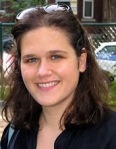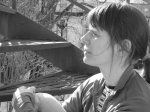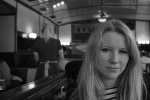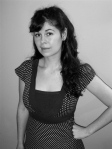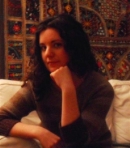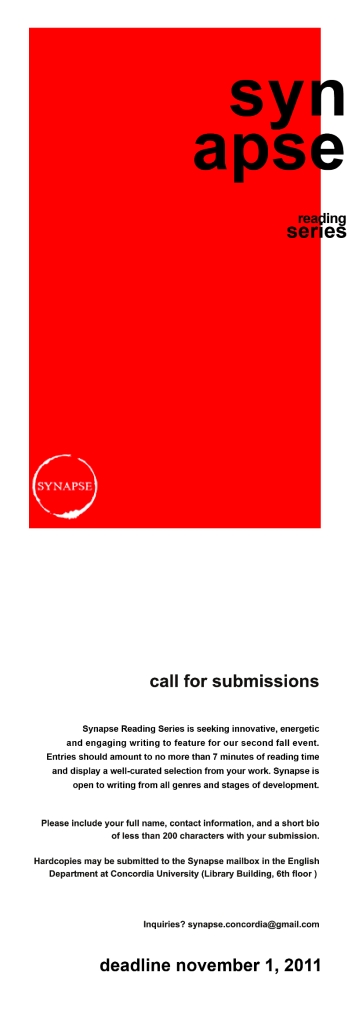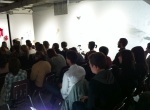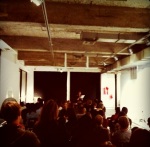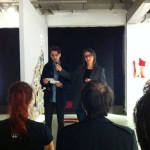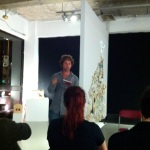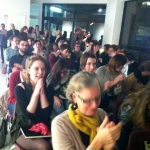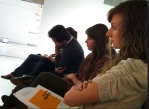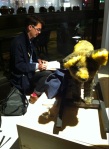KB: Thank you very much. I was incredibly surprised when I found out (though obviously also very pleased!) not least because the other five regional nominees are incredibly strong first books, many of which had been shortlisted for and/or won other major prizes.
Well, since the book was published last year, I’ve been fortunate to have received some very positive reviews in various newspapers and magazines as well as good feedback from readers (and not JUST my friends and family!). But honestly, all the attention since winning this prize has been quite overwhelming – especially the sudden interest from industry professionals who no doubt would never have heard of me otherwise – and I think I’m still adjusting to it, but I’m certainly not complaining! I think this speaks to the reach of the Commonwealth Writers’ Prize. It’s a unique award and I’ve been learning a lot more about it – it’s quite an honour to be associated with this cultural organization whose mandate includes not only propelling both new and established writers and their work into the international spotlight but also such noble goals as promoting global literacy.
I hardly feel qualified to offer advice as I still think of myself as a fledgling writer. But I’d certainly encourage anyone trying to write fiction for the first time to keep going, push through and be prepared to write badly before you start writing well. When I was first attempting short stories, maybe the best advice I got was to try and at least get a first draft down. Then be prepared to revise and edit – a lot.
SC: In the Best First Book category for the Caribbean and Canada, all of the other nominees were owners of a Canadian passport. You are from England, and are now living in Montreal. I have noticed that the humour and scenarios that you create seem as if they are derived from both locations. Do you think that the move has altered your writing significantly? If so, in what ways?
KB: I am a proud owner of a Canadian passport too (it resides in harmony with my EC passport).
Yes, [I now live in Montreal,] and prior to that I lived in Vancouver for a few years, which is where my husband grew up and where I gained my Canadian citizenship. As part of the ceremony I had to pledge my allegiance to the Queen, something I was never required to do as a UK citizen. Frankly, it felt a little strange.
I’m sure immigrating to Canada has influenced if not changed me, though thankfully they let me keep the innate sense of irony all Brits are issued with at birth. It’s hard to say if it’s changed my fiction writing because I didn’t really start writing fiction seriously until a few years ago, after having children and when I was already a dual citizen. The immigrant experience and being a dual national is certainly a subject that I’ve tackled in my writing.
SC: Bird Eat Bird was published by a smaller, indie publisher, Insomniac Press. What made you decide to publish with this press from Toronto?
KB: The question should really be reversed – what made them decide to publish me? It’s a three-word answer: Jon Paul Fiorentino. He already knew (and, luckily, liked) my writing and pitched my collection of stories to Insomniac. Jon Paul edited the book and even designed the cover.
SC: I saw a video of you reading “Lunch Hour” at the Insomniac Press Spring Launch. How important of a role do you think social media has in the literary community? What is a website that you feel every writer should have bookmarked?
KB: Yes, I think it’s on You Tube though in no danger of going viral. However, it does mean I can never read that story “live” again, which is a bit of shame since it lends itself quite well to being read aloud! Actually, I’d already read it in public far too many times so it’s probably as well.
[It] probably [plays a] very [important role], but since I only just properly got on Twitter this week, I’m not exactly ahead of the social media game.
A blog-site called Literary Rejections On Display It’s run by an anonymous writer known only as Writer, Rejected.
SC: Aside from finding inspiration online, where do you go to find yours? I know a lot of writers have a groove they have to get started with their writing. Do you have any things or atmospheres that are a part of your process? Do you have a specific writing regime? Was there a moment that set Bird Eat Bird apart from the rest of your writing, or a moment where you knew it would be what it is today?
KB: That varies. I definitely tend to “write what I know” so draw from my own life experiences and observations a lot. I’ve been inspired on buses, while driving, while playing with my kids… I try to remember to write things down – far too often, I’ve had a “brilliant thought” that I don’t write down, convinced I’ll remember it later, then don’t remember anything other than it was “brilliant”. Chances are it wasn’t brilliant at all, but not remembering can cause untold mental anguish and regret.
Not that I can think of. It’s definitely easier to focus when I’m well into a project. But when I’m beginning something new, or facing a difficult editing phase, I often struggle with such enemies as procrastination and poor time management. I do usually respond well to deadlines (as long as they’re real) but I hate being so eleventh hour. Knowing that these tendencies are common amongst fellow writers is only mildly comforting.
The stories in the book aren’t really themed or linked the way some collections are, although they do all feature a female protagonist (including the pelican). Actually, the working title of the book was “Stories Wot I Wrote” – they were simply my six strongest stories, collected. The book’s eventual title Bird Eat Bird comes most obviously from the first story in which an actual bird eats a bird.
————————————————————————————————–
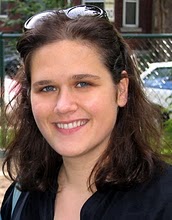
Steph Colbourn co-curates Synapse, a new reading series at Concordia where she is a sophomore majoring in Creative Writing and Electroacoustics. She writes and creates music.
*this interview originally appeared on LemonHound
